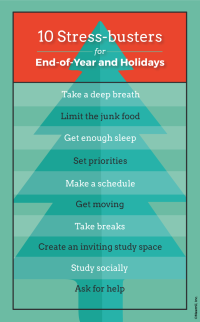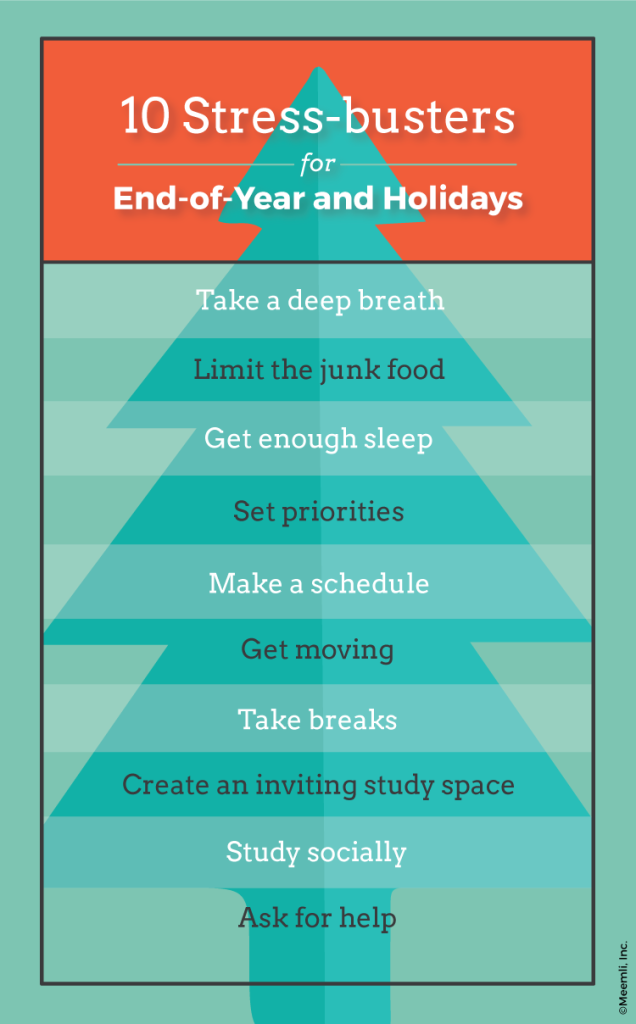Month: December 2015
Three Learning Goals To Take Into The New Year

As 2015 winds down, there’s a flood of year-end reviews and best/worst lists fighting for your attention. . Every single news outlet has its own take on the year behind us. If information overload is the bane of the digital age, it gets amplified at the end of the year, as people tend to look back just as much as they look ahead.
But don’t worry, this is not another “year in review”! We at Meemli took a slightly different approach. A lot has happened in 2015, tragic, uplifting, worrisome, encouraging, but we don’t want to compile yet another list of events. Our focus is narrow, but targeted at something we can use: what education news item of 2015, big or small, gives us warm fuzzies as well as ideas we would like to keep in mind as we move into 2016?
Here are three stories (result of a totally subjective analysis!) with learning goals that we would like to remember and hope they will inform our educational efforts in 2016.

Less Emphasis on Testing
 Students and parents have long complained about the excessive focus on standardized tests, and many educators have agreed. But teachers and schools were unable to do much about it, except point out that testing was crowding out learning.
Students and parents have long complained about the excessive focus on standardized tests, and many educators have agreed. But teachers and schools were unable to do much about it, except point out that testing was crowding out learning.
In 2015, the administration got the message and proclaimed that there will be less emphasis on testing, to much acclaim from parents, students and educators. How it will be implemented is yet to be seen, but the goal is laudable and we’d like to see more learning time in the years to come.
We at Meemli build our courses with a bigger focus on learning than testing, and are happy to see it become more mainstream – it helps to reinforce our commitment!
Kids Should Have Play Time
 While there have been numerous studies on the benefits of play, especially for young children, play time has been steadily displaced by more study time, even for pre-school tots. The message that play is learning has either not been heard or has been abandoned due to the overemphasis on testing (see above), with many negative consequences.
While there have been numerous studies on the benefits of play, especially for young children, play time has been steadily displaced by more study time, even for pre-school tots. The message that play is learning has either not been heard or has been abandoned due to the overemphasis on testing (see above), with many negative consequences.
But, all is not lost. Parents, and educators, are inspired by articles like this one, which shows how Finland, which is at the top of the academic rankings, is exclusively focused on learning through play in the early years. Meemli believes that play helps in developing critical skills and we’re happy that playtime is making a comeback.
We love this set of photos of playgrounds of the world from The Atlantic – we think you would too!
Common Core Math Makes Sense
 The Common Core provides a set of standards in math and English language arts for each grade level, with the expectation that students should have mastered those standards at the end of the school year. The Internet is buzzing with numerous confused parents, some teachers, and many in the general public, sharing stories of simple math problems, which they believe have been solved in an unnecessarily complicated way due to the Common Core.
The Common Core provides a set of standards in math and English language arts for each grade level, with the expectation that students should have mastered those standards at the end of the school year. The Internet is buzzing with numerous confused parents, some teachers, and many in the general public, sharing stories of simple math problems, which they believe have been solved in an unnecessarily complicated way due to the Common Core.
The traditional thinking is that it is important to know how to solve the problem, but Common Core methods guide the child into understanding the mechanics and concepts of math and learning why a solution works, which builds the child’s capacity to solve other, even different, problems. This approach resonates with us at Meemli as we believe understanding, not rote memorization, is crucial for 21st century challenges.
Watching this video from Vox is a good way for parents and others to understand how Common Core methods help students learn math in a thoughtful way. Check it out!
We hope you enjoyed these stories as much as we did. We look forward to more thoughtful, playful, learning success in 2016!
31 Dec, 2015
Conquering The Top 6 Challenges of Study Groups

Yes, it’s that time of year when exams look large, and your teacher may suggest that you and your classmates form study groups to prepare for them. Sounds like a good idea, right? But, more often than not, studying in a group can be a test of its own.
Here are some of common challenges of study groups that you may run into – and ways to solve them so that you can get the most out of learning together and ace those tests!
Challenge 1: Study Time Becomes Hangout Time
To make sure your study group time doesn’t mysteriously transform itself into hangout time full of gossip, giggles, games and goodies, use this simple trick that most adults use at work: Start your study group session with an agenda.
You and your partners should agree on the agenda together. Start with what you want to cover, and from there, ask what else other people want to work on, and make a list. Voila, you just made an agenda!
If you’re already assigned set tasks, decide which ones are most important and the order you want to go over them.

Challenge 2: One Person Dominates
What if one of your group members is smart and talented, but just doesn’t know when to stop monopolizing the conversation? You can help your dominant friend work better with the others. More likely than not, everyone in the group will appreciate you for it.
A great strategy to employ is called “step up, step back.” With this, every person in the group gets a chance to “step up” and share their ideas, then “step back” to let others share. Introduce the idea of “step up, step back” to your group early on, so when someone in your group starts to dominate the conversation, all you have to do is give a little reminder/nudge.
Challenge 3: Things get delayed – a lot
To make the most of your time, divide up the tasks so that everyone works on something different. Then come together at points throughout your work to share what you’ve done. This way, you won’t all get stuck working on one issue while ignoring the other important tasks.
If all members must work together on the same topics, build a solid plan together. Similar to an agenda, your plan may go down to the detail of how long each person has for each task.
For both approaches, assign one person as “Time Keeper” who will watch the clock, check in on groups, give time reminders, and keep everyone on track – don’t forget to take turns as time keeper!
Challenge 4: You Feel You’re Lagging Behind
When you see that everyone else understands something that you’re having trouble with, you might feel like backing down. But, that’s the worst thing you could do for yourself and the group.
Believe it or not, people usually like being asked for help. It makes them feel useful. It also shows that you’re honest about what you need.
If you’re not sure where you need help yet, tell your group you’d like to just listen to them brainstorm or discuss for a while. As you listen, you’ll probably think of questions you didn’t know you had before. Use your questions to start friendly conversations and get real work done.
Challenge 5: You Feel You’re Way Ahead
You might think you already know everything about quadratic equations or how to write an awesome thesis statement. But trying to help someone else reach that understanding in a way that makes sense to them is not as easy as you might think.
One of the best ways to learn a topic is by explaining it to others.
By helping others understand what you know, you’ll solidify your own knowledge and also retain that information better and for longer. Added bonus, you’re doing a good deed!
Challenge 6: It’s Hard To Get Everyone Together
Finding a time and place to meet is often the hardest challenge of studying with a group. If this is your group’s problem, online meeting tools like Google Hangouts, Google Docs, and Skype can be lifesavers. (By the way, Meemli is a good place for shared learning too!!)
When we work/study in groups, there are some obvious benefits in learning. But, we also gain a whole set of other skills, like communication and time management. Working in groups effectively takes teamwork and planning. These are critical life skills that you’ll need in college, your future career and just life in general. Chances are you’ll grow and connect in ways that go beyond the books, and you’ll have some fun along the way.
Do you have any tips or advice about study groups that we left out? Tell us about them!
10 Dec, 2015
Holiday-Year-End Crunch? Stress-busters for Teens!

Ah December! Often dubbed the most wonderful time of year when families and friends gather for festive fun and celebrations. For students, however, the magic of the season may not fully kick in until exams are over and winter break has begun. More often, holiday activities seem to add a few more turns when you’re already tightly wound up with a long to-do list and important deadlines. You want to be a part of the fun and games of the season, but you still need to turn in reports and prep for finals. Stressed out? Don’t worry. Here are some simple ways to keep the holiday spirit while wrapping up the semester (and the gifts!) without melting down like a spent candle.
Take a deep breath.
Have a holiday dinner and a paper due back-to-back? Ready to burst with tension? Just breathe. Start by inhaling slowly and exhaling deeply. It’s not mumbo-jumbo, but a scientific fact that deep breathing triggers the body’s natural relaxation response. You’ll feel calmer immediately as you increase the supply of oxygen in your brain and stimulate your nervous system. Best of all, you can do it anytime, anywhere, without anyone noticing!
Limit the junk food.
Nutritious food nourishes the body and fuels the mind. When you eat well, you feel better, study smarter, and score higher. Healthy food can also lower stress and can keep you healthy . Of course, this is the holiday season, and sugary, fatty, calorie-heavy goodies can be found everywhere you turn – yum! Go ahead, have some. Just don’t overdo it.
Get enough sleep.
If you feel run down or tired, you’re really not going to do so well taking exams, turning in papers, or even playing video games with your cousins at a family gathering. Pulling all-nighters has been proven to do more harm than good. According to this article sleep deprivation and stress form a vicious cycle that’s hard to escape. Set a study schedule for your finals, but do put down the books so you can catch a solid eight hours of zzz’s.
Set priorities.
The holidays are a hectic time with high demands. Your friends are most likely in the same boat as you are. Take on what you absolutely must, and the rest can wait until you’re on vacation. Plan to spend time with your friends worry-free during winter break. Even with family engagements, it’s okay to decline if you’re under a tight deadline. Your family will understand that school should be priority #1.
Make a schedule.
End-of-year stress may seem overwhelming, but you’re already in the home stretch. Make a list of everything you have to do, and put your to-do list on your calendar, making sure you give yourself enough time. If you’re the kind of person who needs three drafts before you’re done with your essay, start writing earlier, not the night before it is due. And make sure to mark off completed items – a big, bold “X” would do the trick – it’ll make your feel good to see the list shrinking!
Get moving.
Exercise is a well-known stress buster. A short run or shooting a few hoops outside will invigorate you and help keep your blood flowing. Leash up the dog and stroll around the neighborhood to admire all the colorful lights and décor. The fresh air will do you good, even if you only go out for 20 minutes. Balance your schedule to make some room for active hobbies.
Take breaks.
Take timeouts that will help you recharge your emotional batteries. Make time to relax, listen to music, enjoy hobbies and holiday events. Just because you’re up against finals doesn’t mean you can’t take a breather to make a gift for a friend or bake cookies with your siblings. A healthy balance of fun activities can make a stressful schedule feel more manageable.
Create an inviting study space.
If you’re going to spend a significant amount of time in your study space, make sure that it’s inviting and comfortable. Sitting at your desk for several hours? Add some festive holiday décor to set a merrier mood and balance your work with play. As long as the space is quiet and you can concentrate, go ahead and have a little fun with it!
Study socially.
Getting together with friends to prep for a history test can be less stressful than doing it alone (unless group-study doesn’t work for you). You can gather at a friend’s home for some holiday cheer and then bust out the books. If you’re not able to meet in person, you can still “meet” online to work together. .
Ask for help.
If you’re feeling overwhelmed, reach out to others for some help! Your friends and classmates can help you study. Your family and teachers would be happy to help too. Ask teachers for a bit of one-on-one guidance. Have your parents quiz you on your course content, or just help you de-stress and unwind a little by listening to you.
These tips should help you keep the stress manageable and stay on track as you finish up the year. And bonus tip: these ideas work for everyone – not just students! Feel free to share with anyone you know who could use some tips on de-stressing. Do you have your own favorite stress-busters? We’d love to hear about them. Good luck and happy holidays!




